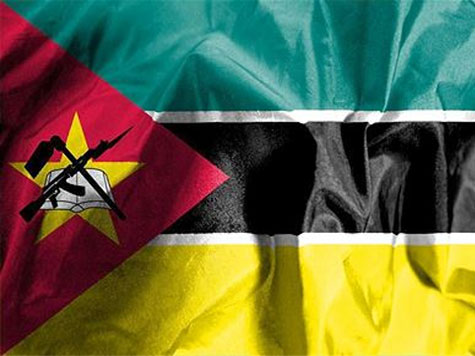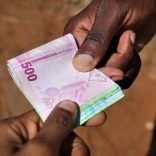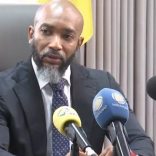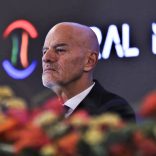Mozambique’s 2026 budget prioritises wage bill control and debt stabilisation – govt
Mozambique: Negotiations on debt-for-climate swaps are underway

File photo: Lusa
The Mozambican government has said that it is in negotiations with some countries to swap debt for climate finance [Debt-for-Climate Swaps – DFCS)9 a topic that will be discussed at the Fourth International Conference on Financing for Development (FfD4), which starts in Seville, Spain, this Monday.
“We are already surveying more countries that could join this initiative and we are interested in the initiative because, on the one hand, the debt-for-climate swap action benefits our own country, since the debt service is channelled towards actions related to climate change in our country. And we know how exposed our country is to climate change,” said Mozambique’s Minister of Finance, Carla Loveira, before the start of the United Nations-organized conference.
The minister, who is accompanying President of the Republic Daniel Chapo to the conference, explained that Mozambique will present, “with regard to financing and development”, the results of its experience in three main areas, firstly the financial inclusion component, and the concomitant creation of a Development Bank.
Another pillar that Mozambique is taking to Seville is the energy transition, and particularly how the country can “maximize the gains of the carbon market to catapult financing”.
“But still in financial inclusion we have green financing,” in which the country is a participant, highlighted the minister. “In climate financing, the essential actions that we are working on, in which we will share our experience, concern the debt-for-climate swap component,” Minister Loveira explained.
The minister added that “there is interest” from some countries in these debt-for-climate swaps: “Mozambique is already designing a climate finance strategy, so we are already carrying out actions to swap debt with the climate. There are interested countries, some of which have already expressed their interest, and we with which we have already reached an agreement, such as Belgium. And, therefore, this is a segment that we are working on.”
Carla Loveira further explained that the DFCS mechanism in question is one in which “countries express options to debtor countries”, in order to “work on the existing debt”, highlighting that in the past some countries have already “forgiven the debt of developing countries”.
“So, what these countries are saying is that, if there is a debt that the country has, or may have with their country, it is the service of this debt, instead of using the remainder to pay the debt, it should be used to finance actions related to climate finance, such as, for example, climate-resilient infrastructures, or climate insurance,” concluded the minister.
More than 60 world leaders and 4,000 civil society representatives are meeting in Seville this week to relaunch development aid, which currently has a deficit of four billion dollars per year, according to the United Nations.
The President of Mozambique will participate in FfD4 as part of a working visit to Spain, which began on Sunday and will continue until Thursday July 3.
“The ‘Seville Commitment’ will be adopted at this conference, which is a plan for financing development for the next decade,” the Mozambican presidency has commented.
The 4th UN International Conference on Financing for Development (FFD4) is taking place from Monday to Thursday, ten years after the previous one, in Ethiopia in 2015.
The aim now is to “renew the global financing for development framework” at a time of “serious geopolitical tensions, conflicts, increasing macroeconomic challenges and growing systemic risks” and when the goals agreed by the international community in the 2030 Agenda are “severely off track”, according to the text of the ‘Seville Commitment’, the declaration already negotiated within the UN and which is due to be formally adopted this week.













Leave a Reply
Be the First to Comment!
You must be logged in to post a comment.
You must be logged in to post a comment.